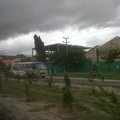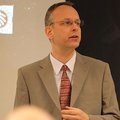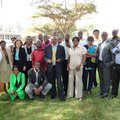Rising Scholars News
1659 articles were found.
Resource of the Week #7: A Video on Strategies for Publishing
Hello! This week I’m featuring a resource that a graduate student of mine recommended. It’s a video titled “Publishing Strategies: The When-Where-What of Scientific Publishing”.
This video, which is from …
Tip of the Week #25
If readers are interpreting your draft in more than one way, know that your paper needs to be written more clearly.
Guest Post: Memories of a Conference: eLearning Africa
[This week’s post is from Ravi Murugesan, AuthorAID training coordinator. Thank you, Ravi! –Barbara]
In late May, I was at the eLearning Africa conference in Dar es Salaam, Tanzania. I …
White Space: Giving Readers Mini-Vacations
Greetings again. I hope that all is going well for you.
My husband and I arrived back from vacation this evening. We had a very pleasant week. Highlights included visiting …
Resource of the Week #6: Tips of the Week #1–#25
Hello! This week our featured resource is a collection of the first 25 AuthorAID Tips of the Week. This collection appears in the AuthorAID Resource Library.
The first AuthorAID Tip …
Guest Post: The Role of the Journal Editor
[This week’s blog post is from AuthorAID community member Richard de Grijs, a professor at the Kavli Institute for Astronomy and Astrophysics, Peking University, China. Richard has published many articles …
Tip of the Week #29
Be tactful in criticizing the work of other authors while justifying yours. Know that an author cited is a potential reviewer of your paper.
Grant Proposals: A Workshop and an Opportunity
Greetings again. I hope that all is going well for you.
A few days ago I returned from facilitating an AuthorAID workshop on writing grant proposals. This 4-day workshop was …
Remembering Bruce Squires
Earlier this month, international communication of research lost a good friend: Editor Bruce Squires died at age 77.
Bruce P Squires MD, PhD, was editor-in-chief of CMAJ: Canadian Medical Association …
Tip of the Week #24
Numbers can help strengthen your writing. But before you use percentages or proportions, make sure readers know the base number. If an author claims "33.3% of the rats died, 33.3% …




